
Avignon: The Heart of Provence
Avignon, a charming city in the South of France, is a delightful blend of history, culture, and vibrant local life. Known as the City of Popes, Avignon's most iconic landmark is the Palais des Papes, a majestic Gothic palace that served as the papal residence in the 14th century. The palace, along with the well-preserved medieval ramparts and the famous Pont d'Avignon bridge, make it a UNESCO World Heritage site. Wander through the cobbled streets of Avignon's old town, filled with quaint cafes, boutique shops, and lively markets. The Place de l'Horloge, the city's main square, buzzes with activity and is a great spot to enjoy a coffee while watching street performers. Don't miss the Avignon Cathedral and the Rocher des Doms park, offering stunning views over the Rhône River. Avignon is also renowned for its vibrant arts scene. The annual Festival d'Avignon, held every July, is one of the most important contemporary performing arts events in the world. The city's theaters, galleries, and museums, such as the Musée Calvet and the Collection Lambert, showcase a rich array of artistic talent. Food lovers will delight in Avignon's culinary offerings. The city's restaurants serve delicious Provençal cuisine, with local specialties such as ratatouille, tapenade, and of course, fine wines from the nearby vineyards of Châteauneuf-du-Pape. The Les Halles market is a must-visit for anyone wanting to sample fresh local produce and delicacies.
Local tips in Avignon
- Visit Avignon in July to experience the renowned Festival d'Avignon, a major event in the world of contemporary performing arts.
- Take a guided tour of the Palais des Papes for an in-depth understanding of its history and architecture.
- Explore the local markets, especially Les Halles, for fresh produce and traditional Provençal delicacies.
- Rent a bike to enjoy a leisurely ride along the Rhône River and explore the city at your own pace.
- Consider a day trip to the nearby vineyards of Châteauneuf-du-Pape for wine tasting.
Neighbourhoods in Avignon
Avignon: The Heart of Provence
Avignon, a charming city in the South of France, is a delightful blend of history, culture, and vibrant local life. Known as the City of Popes, Avignon's most iconic landmark is the Palais des Papes, a majestic Gothic palace that served as the papal residence in the 14th century. The palace, along with the well-preserved medieval ramparts and the famous Pont d'Avignon bridge, make it a UNESCO World Heritage site. Wander through the cobbled streets of Avignon's old town, filled with quaint cafes, boutique shops, and lively markets. The Place de l'Horloge, the city's main square, buzzes with activity and is a great spot to enjoy a coffee while watching street performers. Don't miss the Avignon Cathedral and the Rocher des Doms park, offering stunning views over the Rhône River. Avignon is also renowned for its vibrant arts scene. The annual Festival d'Avignon, held every July, is one of the most important contemporary performing arts events in the world. The city's theaters, galleries, and museums, such as the Musée Calvet and the Collection Lambert, showcase a rich array of artistic talent. Food lovers will delight in Avignon's culinary offerings. The city's restaurants serve delicious Provençal cuisine, with local specialties such as ratatouille, tapenade, and of course, fine wines from the nearby vineyards of Châteauneuf-du-Pape. The Les Halles market is a must-visit for anyone wanting to sample fresh local produce and delicacies.
When is the best time to go to Avignon?
Iconic landmarks you can’t miss
Palais des Papes
Explore the Palais des Papes, the largest Gothic palace in the world and a UNESCO World Heritage site, in Avignon, France.
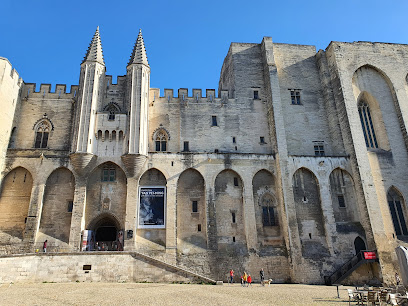
Pont Saint-Benezet (Le Pont d'Avignon)
Discover the legendary Pont d'Avignon, a UNESCO World Heritage site and iconic symbol of Avignon, made famous by the beloved children's song.
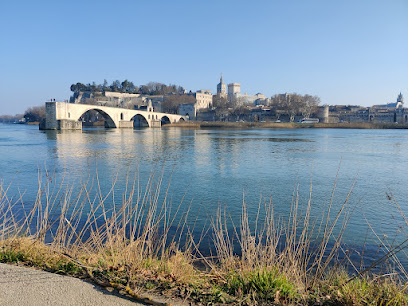
Les Halles d'Avignon
Experience the vibrant flavors of Provence at Les Halles d'Avignon, a bustling market with fresh produce, local delicacies, and a unique green wall.
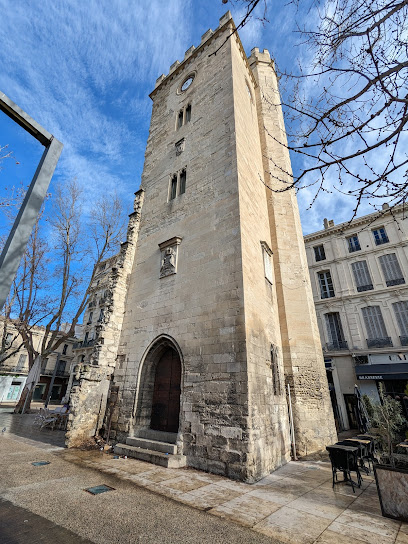
Jardin des Doms
Discover panoramic views and serene beauty at Avignon's Jardin des Doms, a hilltop garden escape with rich history and stunning scenery.
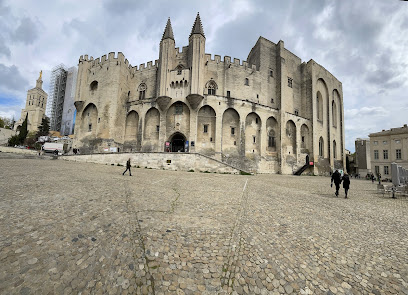
Fort Saint-André
Discover the historic Fort Saint André in Villeneuve-lès-Avignon, a monumental fortress offering stunning views and a glimpse into France's military past.
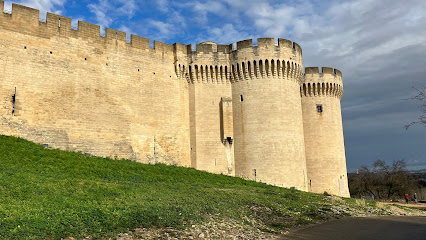
Philippe-le-Bel Tower
Explore a medieval fortress tower with panoramic views of Avignon and the Rhône Valley, steeped in history and architectural grandeur.
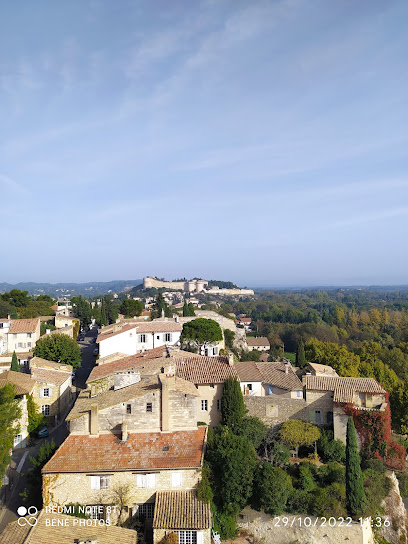
Avignon Cathedral
Explore Avignon Cathedral, a blend of Romanesque, Gothic, and Baroque architecture, and a UNESCO World Heritage Site steeped in papal history.
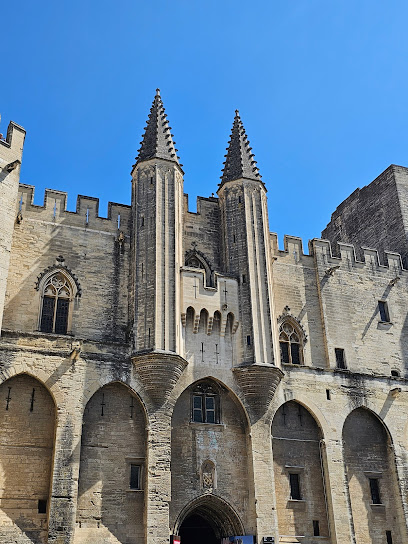
Musée Lapidaire
Explore the treasures of ancient civilizations at Musée Lapidaire in Avignon, where history comes alive through a fascinating collection of art and artifacts.
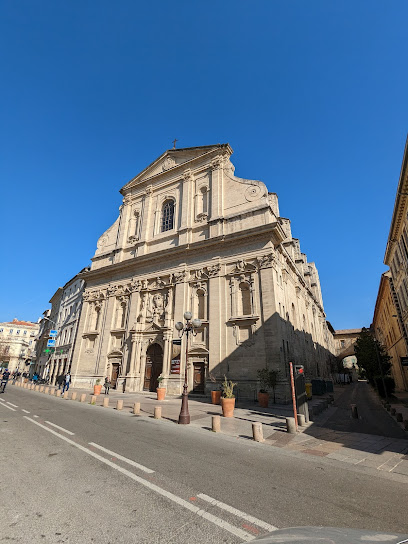
Opéra Grand Avignon
Experience world-class opera and performing arts in Avignon's historic Opéra Grand Avignon, a cultural jewel since the 19th century.
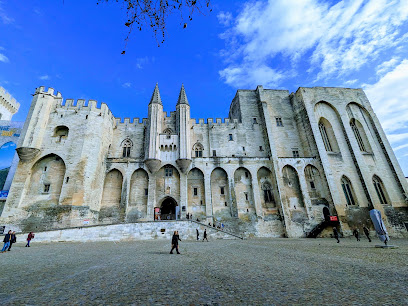
Musée Angladon
Discover masterpieces by Van Gogh, Cézanne, and Picasso in an intimate setting at Avignon's Musée Angladon, a hidden gem of art and history.
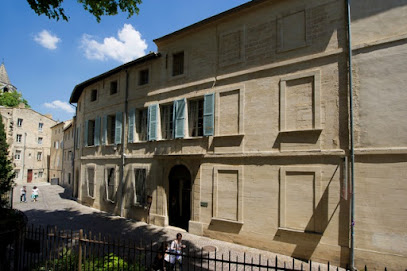
Remparts d'Avignon
Explore Avignon's UNESCO-listed ramparts: a journey through medieval history with stunning views of the Rhône Valley and the city.
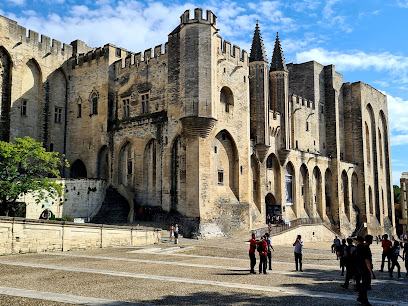
Basilique Saint-Pierre
Discover Avignon's architectural gem: a Gothic basilica with stunning carved doors and a rich history dating back to the 14th century.
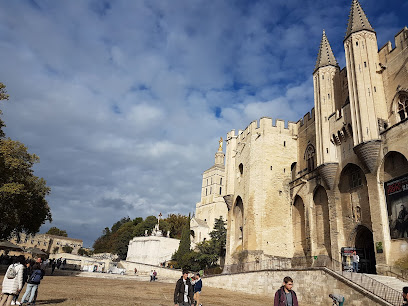
Église Saint Didier
Discover Église Saint-Didier in Avignon, a 14th-century Gothic masterpiece with stunning architecture and artistic treasures.
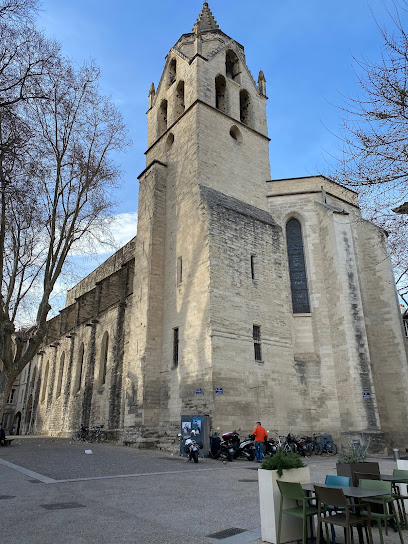
Musée du Petit Palais
Explore medieval and early Renaissance art in Avignon's Petit Palais, home to Italian primitives and the Avignon school.
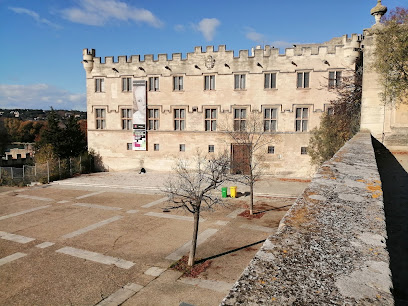
Palais du Roure
Explore Provençal history and culture at Avignon's Palais du Roure, a captivating 15th-century palace and museum.
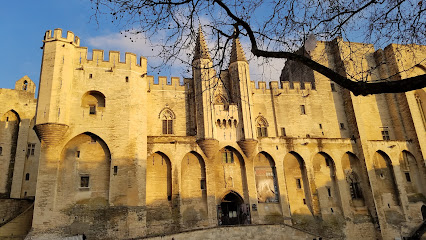
Unmissable attractions to see
Palais des Papes
Explore the Palais des Papes, Europe's largest Gothic palace and a UNESCO World Heritage site, in Avignon, France, a symbol of papal power and artistic grandeur.
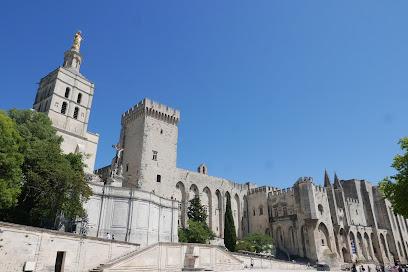
Pont du Gard
Marvel at the Pont du Gard, an iconic Roman aqueduct bridge, a UNESCO World Heritage site showcasing ancient engineering and offering a blend of history, culture, and natural beauty in southern France.

Carrières des Lumières
Experience art in a new light at Carrières des Lumières, an immersive digital art center in a former quarry near Les Baux-de-Provence, where masterpieces come alive on a monumental scale.
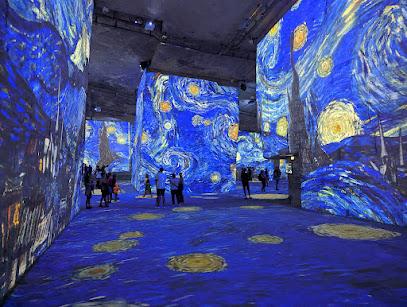
Le Sentier des Ocres
Experience the stunning ochre cliffs and vibrant landscapes of Le Sentier des Ocres, a must-visit hiking trail in Roussillon, Provence.
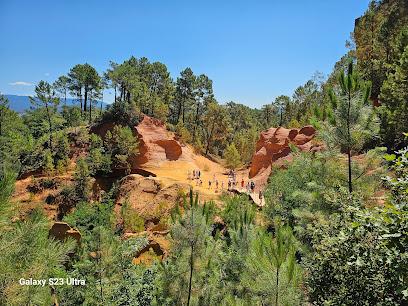
Jardin de La Fontaine
Discover Nîmes' enchanting Jardin de la Fontaine: a historic oasis blending Roman ruins, elegant French gardens, and serene Mediterranean landscapes for an unforgettable experience.
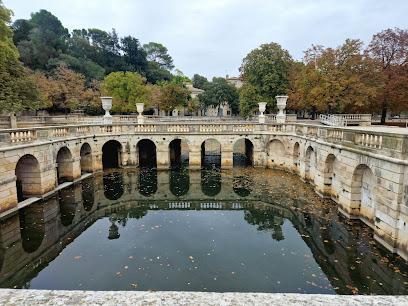
The Bridge of Avignon
Discover the legendary Pont d'Avignon, a UNESCO World Heritage site, and immerse yourself in the history and charm of this iconic medieval bridge made famous by the beloved song.
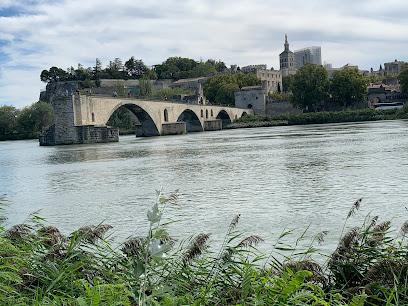
Arles Arena
Step back in time at the Arles Arena, a remarkably preserved Roman amphitheater hosting bullfights and concerts, offering a unique blend of history and entertainment in the heart of Provence.
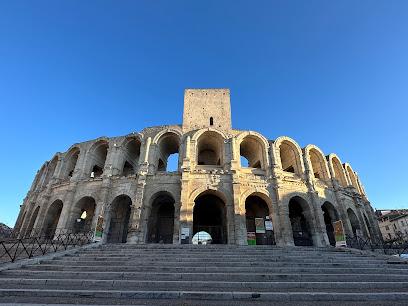
Château des Baux-de-Provence
Explore the ruins of a medieval fortress in Provence, with stunning views, historical reenactments, and a glimpse into the lives of lords and ladies.
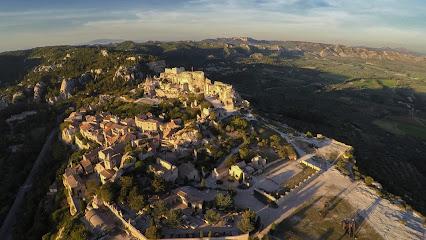
Théâtre antique d'Orange
Experience the grandeur of ancient Rome at the Théâtre Antique d'Orange, a UNESCO World Heritage site and a vibrant cultural venue hosting world-class performances and historical explorations.
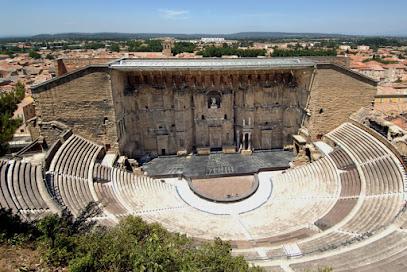
Château de Gordes
Explore the Château de Gordes, a stunning blend of medieval fortress and Renaissance palace, offering art exhibitions and panoramic views in one of Provence's most beautiful villages.
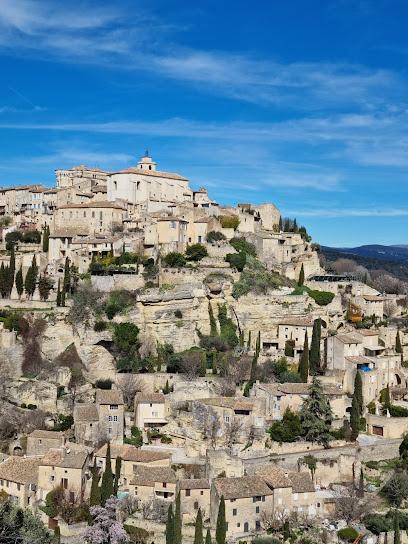
Abbaye Notre-Dame de Sénanque
Discover the serene beauty and spiritual heritage of Abbaye Notre-Dame de Sénanque, a Cistercian monastery nestled amidst Provence's iconic lavender fields, offering a glimpse into monastic life.
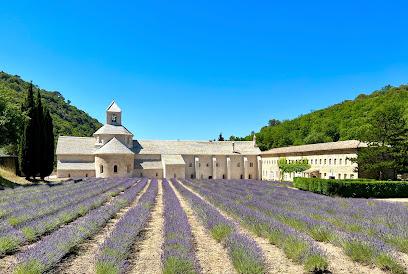
Les Halles d'Avignon
Discover the vibrant flavors of Provence at Les Halles d'Avignon, a bustling covered market offering fresh produce, local delicacies, and a unique cultural experience in the heart of Avignon.
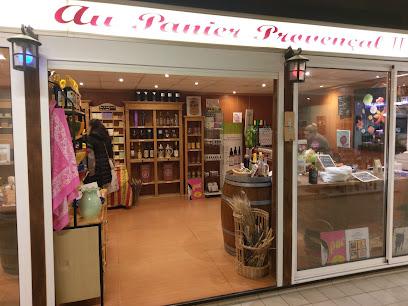
Museum Romanité
Explore 25 centuries of Roman history at Nîmes' Musée de la Romanité, a modern architectural marvel showcasing a vast collection of artifacts and interactive exhibits.
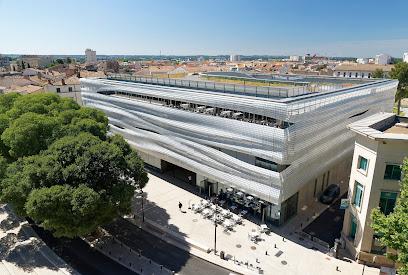
Château de Lourmarin
Discover Château de Lourmarin, Provence's first Renaissance castle, where history, art, and stunning views converge in the heart of the Luberon, offering a rich cultural experience.
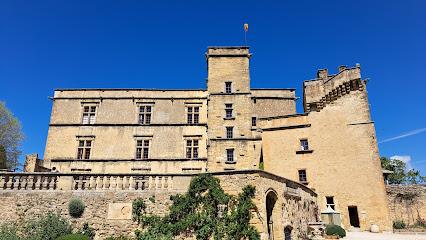
Jardin des Doms
Discover panoramic views and tranquil gardens atop Avignon's Rocher des Doms, a historic landmark offering a refreshing escape and breathtaking vistas of the city and Rhône Valley.
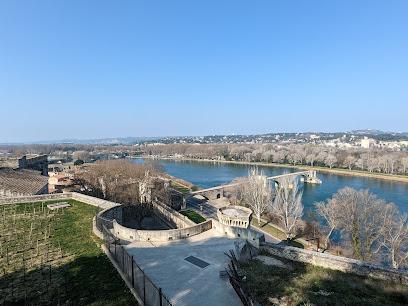
Essential places to dine
Restaurant Le Bercail
Experience the best of French cuisine at Restaurant Le Bercail in Avignon - where every dish tells a story.
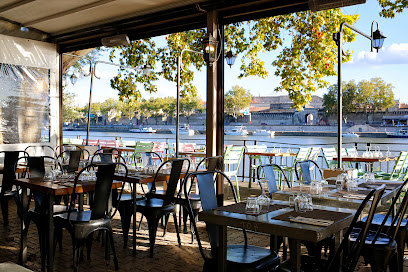
Le Vintage
Savor exquisite modern French cuisine at Le Vintage in Avignon - where tradition meets innovation in every bite.
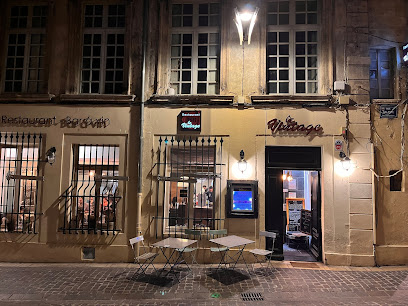
La Cour d'Honneur - Restaurant Avignon Centre Ville
Experience authentic French cuisine at La Cour d'Honneur in the heart of Avignon – where tradition meets culinary excellence.
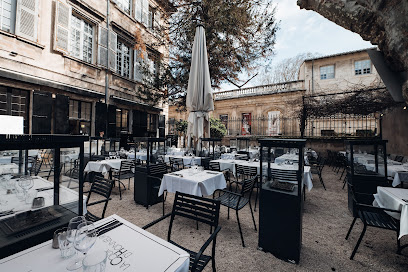
L'Épicerie de Ginette
Discover authentic French bistro cuisine at L'Épicerie de Ginette in Avignon – where every dish tells a story.
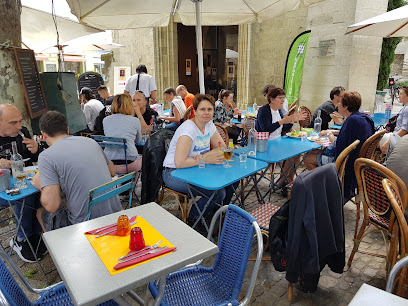
Le Carré du Palais
Discover exquisite French cuisine and fine wines at Le Carré du Palais in Avignon – a culinary gem for every food lover's itinerary.
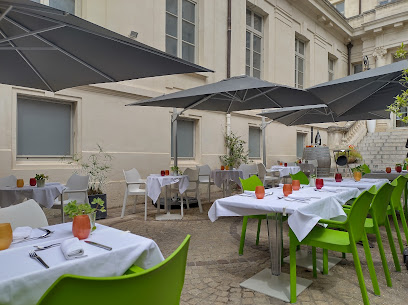
Restaurant L'Épicerie
Discover authentic French and Provençal cuisine at Restaurant L'Épicerie in Avignon's picturesque setting.
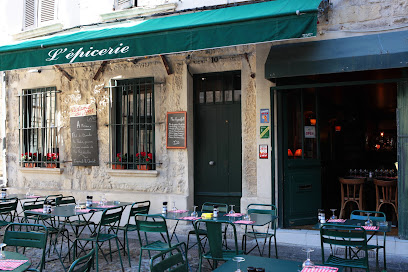
Avenio
Discover Avenio: A premier French restaurant in Avignon offering exquisite dishes crafted from fresh local ingredients in an inviting atmosphere.
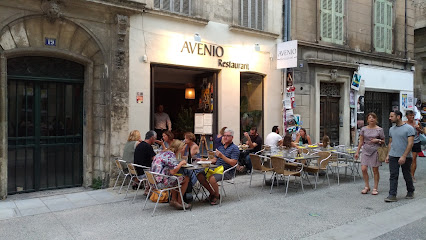
Mamma Corsica Restaurant
Experience authentic French flavors at Mamma Corsica in Avignon, where every dish tells a story of culinary excellence.
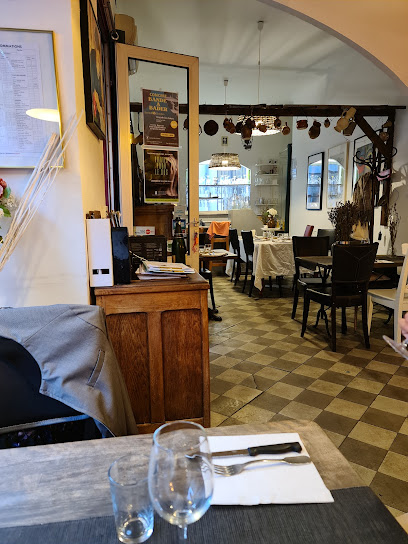
Restaurant Bar à Vin Le 46
Discover exquisite Mediterranean flavors at Restaurant Bar à Vin Le 46 in Avignon, where fine dining meets exceptional wine selections.
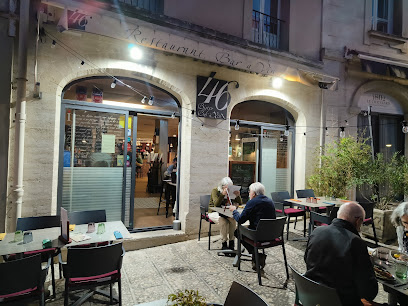
D'Ici Et D'Ailleurs
Experience the best of French and Mediterranean cuisine at D'Ici Et D'Ailleurs in the heart of Avignon.
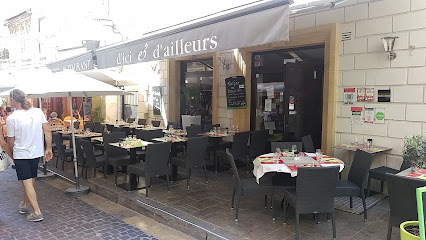
La Cuisine de Papa
Experience the essence of French cuisine at La Cuisine de Papa in Avignon—delicious hamburgers and traditional dishes await you!
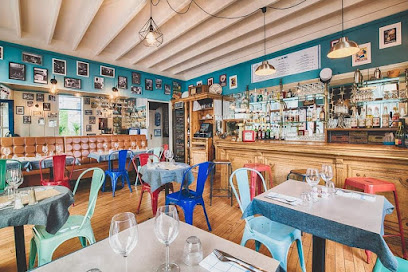
La brasserie de l’horloge
Discover the culinary delights of La Brasserie de l’Horloge in Avignon - where tradition meets innovation in every dish.
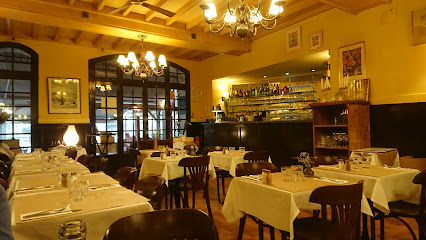
Restaurant L'Offset
Experience exquisite French cuisine in Avignon at Restaurant L'Offset, where traditional flavors meet modern elegance.
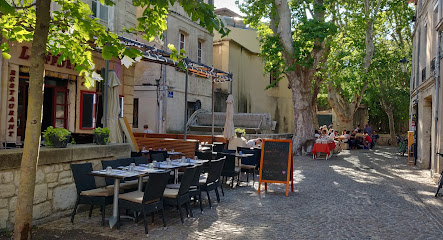
Restaurant EAT
Experience exquisite French and Mediterranean cuisine at Restaurant EAT in Avignon—where culinary artistry meets local tradition.
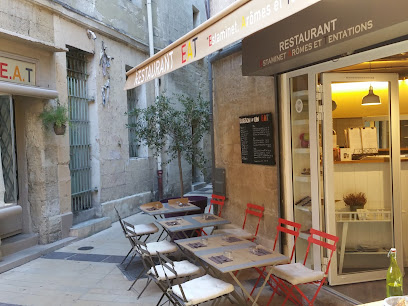
The Conservatory
Discover the culinary treasures at The Conservatory—where classic French cuisine meets modern flavors in beautiful Avignon.
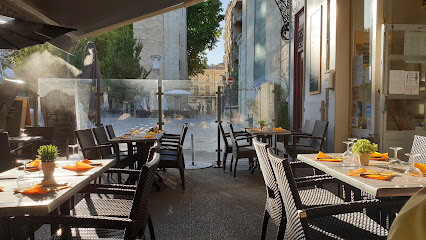
Markets, malls and hidden boutiques
CAP SUD - Le Centre Commercial d'Avignon
Discover the ultimate shopping experience at CAP SUD, Avignon's vibrant shopping mall with diverse stores and delightful dining options.
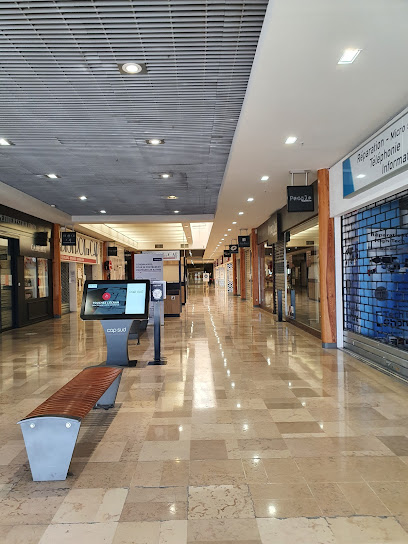
Galeries Lafayette
Explore Galeries Lafayette in Avignon: A shopping paradise featuring luxury brands, beauty supplies, and children's clothing, perfect for every tourist's needs.
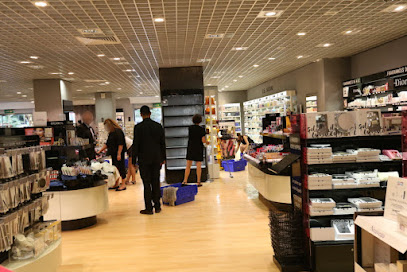
French Retailers
Discover the latest fashion trends at French Retailers, a stylish clothing store in the heart of Avignon, where elegance meets contemporary design.
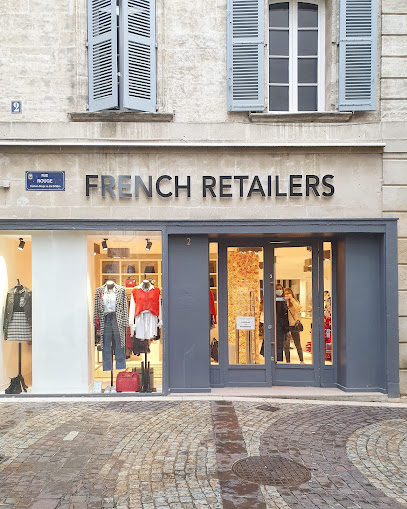
PYLONES
Explore PYLONES in Avignon: A whimsical gift shop brimming with unique fashion and home accessories that embody the spirit of France.
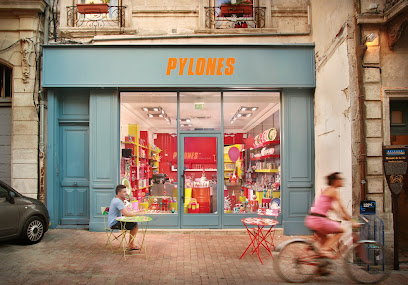
Beaucoup Store
Discover unique handmade goods and vintage treasures at Beaucoup Store in Avignon, the perfect boutique for memorable souvenirs.
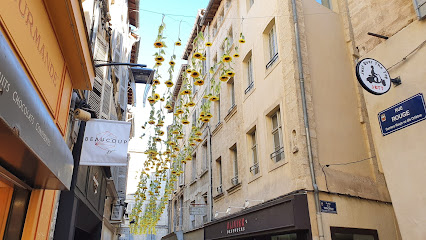
Maison 123
Discover Avignon's chicest boutique, Maison 123, featuring exclusive women's clothing and accessories for the modern fashionista.
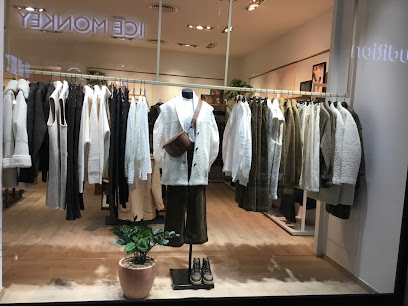
CASA Avignon
Explore CASA Avignon, your go-to destination for unique gifts, home goods, and garden essentials in the charming city of Avignon.
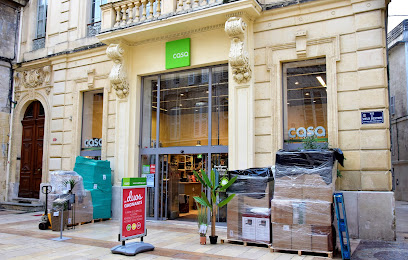
Promod
Explore stylish clothing and accessories at Promod in Avignon, where fashion meets affordability and quality.
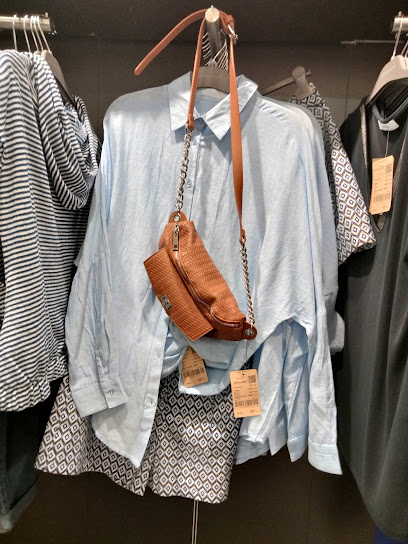
La Fée Maraboutée
Explore the chic women's clothing boutique La Fée Maraboutée in Avignon, where elegance meets contemporary fashion in a delightful shopping experience.
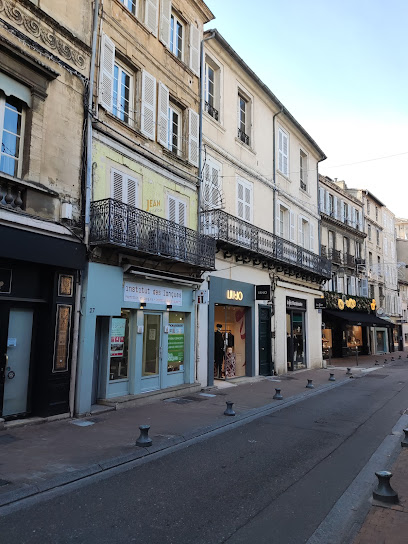
CQFD (boutique made in France)
Explore CQFD in Avignon for a unique selection of French-made gifts, clothing, and home goods that celebrate local craftsmanship.
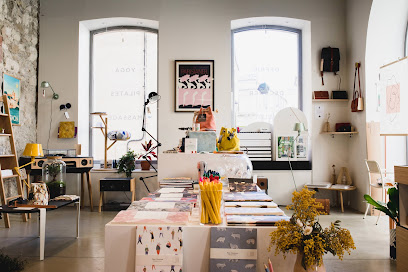
Le Château du Bois Producteur de Lavande Fine - Avignon
Experience the enchanting world of lavender at Le Château du Bois, a unique gift shop and museum in the heart of Avignon.
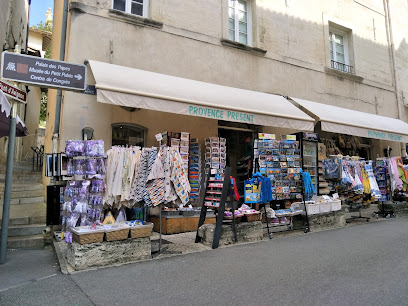
La boutique du sac
Experience the charm of Avignon through exquisite leather goods at La Boutique du Sac, where craftsmanship meets style.
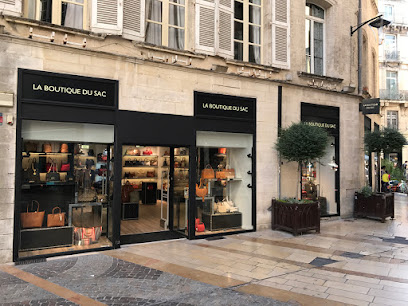
Les Demoiselles d'Avignon
Explore the vibrant and unique offerings of Les Demoiselles d'Avignon, your go-to gift shop in Avignon for distinctive souvenirs and local treasures.
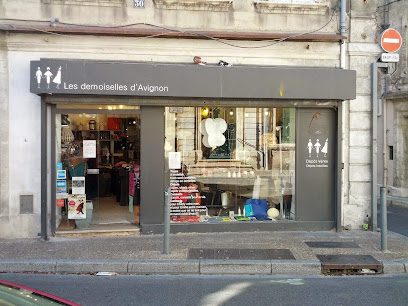
Jrockinside Avignon
Explore Avignon's vibrant fashion scene at Jrockinside, where unique styles and creative designs await every visitor.
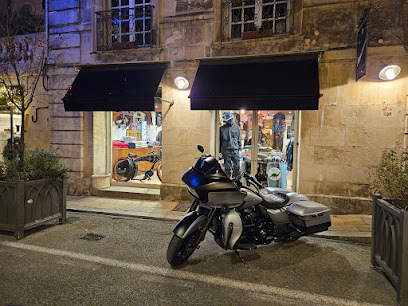
Jean - Paul et Chris Boutique
Discover stylish clothing for men, women, and babies at Jean - Paul et Chris Boutique, a fashion haven in the heart of Avignon.
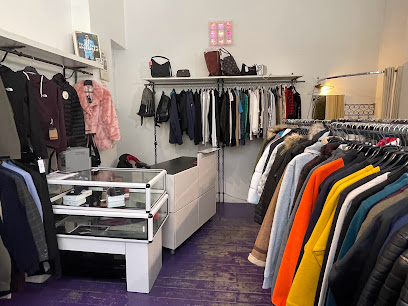
Essential bars & hidden hideouts
O'Collins's Irish Pub
Discover the lively spirit of Ireland at O'Collins's Irish Pub in Avignon, where great beers and hearty meals await in a friendly atmosphere.
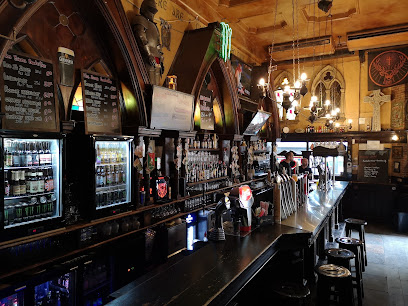
Le Carré du Palais
Experience the finest wines and exquisite French cuisine at Le Carré du Palais, a charming wine bar and restaurant in Avignon.
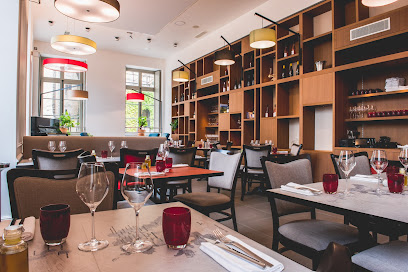
L'Explo
Experience the lively atmosphere and craft beer selection at L'Explo, Avignon's premier beer hall for locals and tourists alike.
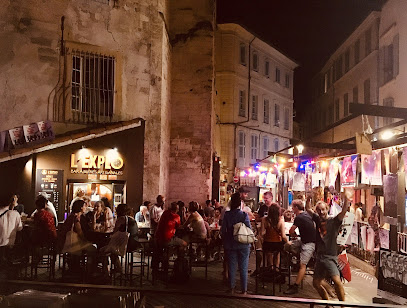
The Pipeline
Experience the vibrant atmosphere of The Pipeline in Avignon, where local brews and great company flow abundantly.
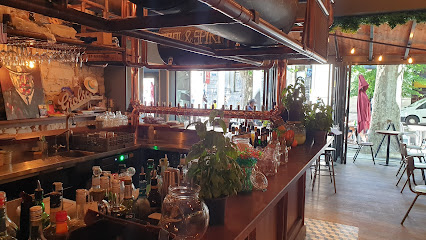
The Red Sky
Experience the vibrant nightlife of Avignon at The Red Sky, a bar offering eclectic drinks and a lively atmosphere perfect for unwinding.
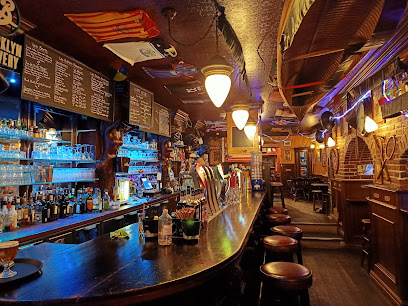
Beer O'Clock
Discover the essence of craft beer and fine wines at Beer O'Clock, Avignon's vibrant hub for enthusiasts seeking quality and atmosphere.
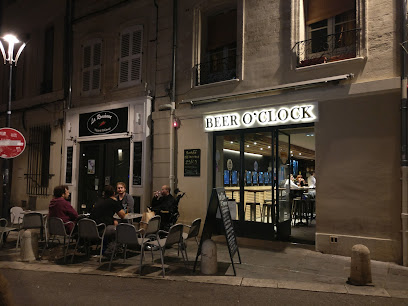
La Cave Des Pas Sages
Discover the charm of Avignon at La Cave Des Pas Sages, where fine wines and delectable bites come together in a cozy bar atmosphere.
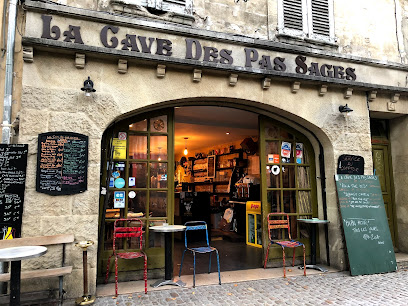
Au Fût et à mesure Avignon
Discover the lively ambiance of Au Fût et à Mesure, Avignon's premier beer hall offering craft beers, cocktails, darts, and live music.
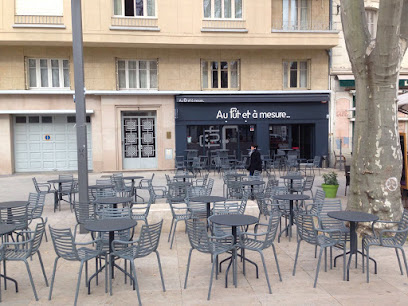
Barberousse Avignon
Experience the vibrant nightlife of Avignon at Barberousse, where eclectic drinks and a lively atmosphere await every visitor.
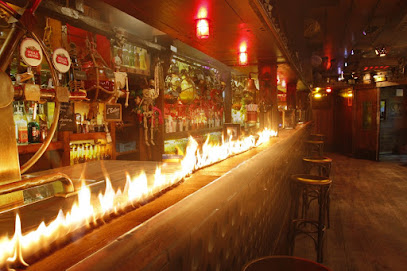
Lalogène
Experience the vibrant atmosphere of Lalogène, a bar in Avignon offering delightful drinks and a taste of local culture.
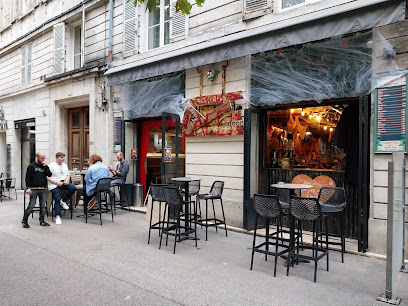
BAR DU CHANGE
Discover the vibrant atmosphere and exquisite cuisine of Bar du Change, a must-visit bar and brasserie in the heart of Avignon.
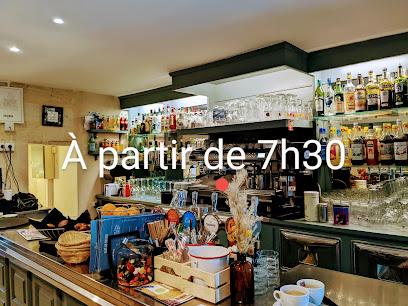
Mon Bar
Experience the vibrant atmosphere of Mon Bar in Avignon, where you can savor delightful drinks and create unforgettable memories.
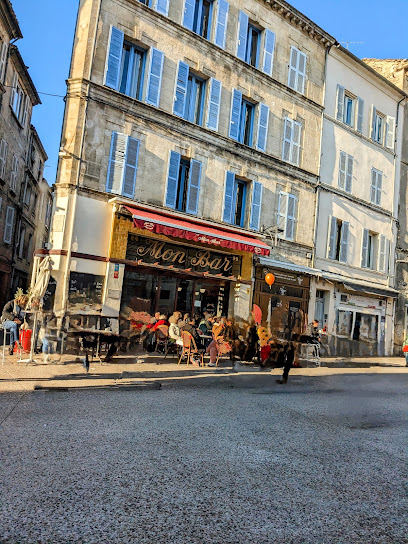
TAPIS ROUGE
Discover the enchanting TAPIS ROUGE wine bar in Avignon, where local and international wines await in a cozy, inviting atmosphere.
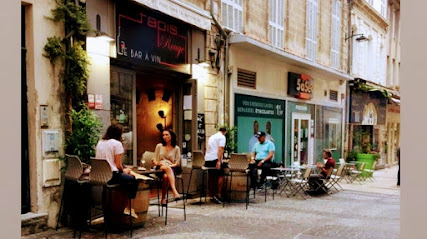
Bar La place ️| Terrasse Cocktail Music
Discover the lively atmosphere of Bar La Place in Avignon, where cocktails, live music, and a vibrant terrace await every visitor.
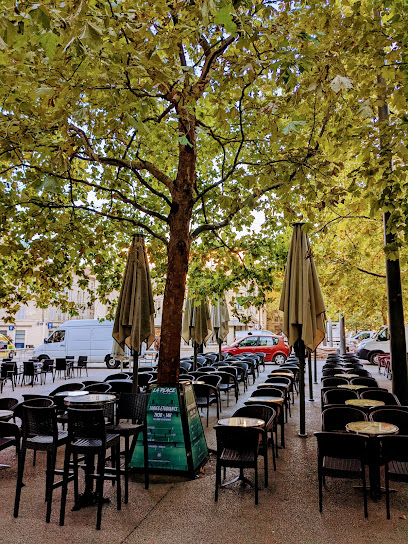
Travel experiences inspired by this city
Explore more travel diariesLocal Phrases
-
- HelloBonjour
[bon-zhoor] - GoodbyeAu revoir
[oh ruh-vwahr] - YesOui
[wee] - NoNon
[nohn] - Please/You're welcomeS'il vous plaît/De rien
[seel voo pleh / duh ryen] - Thank youMerci
[mehr-see] - Excuse me/SorryExcusez-moi/Désolé
[ehk-skew-zay mwah / day-zoh-lay] - How are you?Comment ça va?
[koh-mohn sah vah?] - Fine. And you?Bien. Et vous?
[byen. ay voo?] - Do you speak English?Parlez-vous anglais?
[par-lay voo ahn-glay?] - I don't understandJe ne comprends pas
[zhuh nuh kohm-prahnd pah]
- HelloBonjour
-
- I'd like to see the menu, pleaseJe voudrais voir le menu, s'il vous plaît
[zhuh voo-dray vwar luh muh-noo, seel voo pleh] - I don't eat meatJe ne mange pas de viande
[zhuh nuh mahnj pah duh vyand] - Cheers!Santé!
[sahn-tay] - I would like to pay, pleaseJe voudrais payer, s'il vous plaît
[zhuh voo-dray pay-ay, seel voo pleh]
- I'd like to see the menu, pleaseJe voudrais voir le menu, s'il vous plaît
-
- Help!Au secours!
[oh se-koor] - Go away!Allez-vous en!
[ah-lay voo zahn] - Call the Police!Appelez la police!
[ah-play lah poh-lees] - Call a doctor!Appelez un médecin!
[ah-play uh may-duh-sahn] - I'm lostJe me suis perdu
[zhuh muh swee pair-doo] - I'm illJe suis malade
[zhuh swee mah-lahd]
- Help!Au secours!
-
- I'd like to buy...Je voudrais acheter...
[zhuh voo-dray zah-shay...] - I'm just lookingJe regarde juste
[zhuh ruh-gard zhuhst] - How much is it?Combien ça coûte?
[kohm-byen sah koot?] - That's too expensiveC'est trop cher
[say troh shair] - Can you lower the price?Pouvez-vous baisser le prix?
[poo-veh voo bay-say luh pree?]
- I'd like to buy...Je voudrais acheter...
-
- What time is it?Quelle heure est-il?
[kel uhr ay-teel?] - It's one o'clockIl est une heure
[eel ay oon uhr] - Half past (10)Dix heures et demie
[dees uhr ay duh-mee] - MorningMatin
[mah-tahn] - AfternoonAprès-midi
[ah-pray mee-dee] - EveningSoir
[swahr] - YesterdayHier
[yehr] - TodayAujourd'hui
[oh-zhoor-dwee] - TomorrowDemain
[duh-mahn] - 1Un
[uhn] - 2Deux
[duh] - 3Trois
[twah] - 4Quatre
[kah-truh] - 5Cinq
[sank] - 6Six
[sees] - 7Sept
[set] - 8Huit
[wheet] - 9Neuf
[nuff] - 10Dix
[dees]
- What time is it?Quelle heure est-il?
-
- Where's a/the...?Où est...?
[oo ay...?] - What's the address?Quelle est l'adresse?
[kel ay la-dress?] - Can you show me (on the map)?Pouvez-vous me montrer (sur la carte)?
[poo-veh voo muh mohn-tray (sir lah kart)?] - When's the next (bus)?Quand est le prochain (bus)?
[kahn ay luh pro-shahn (buss)?] - A ticket (to ....)Un billet (pour ....)
[uhn bee-yay (poor ....)]
- Where's a/the...?Où est...?
History of Avignon
-
Avignon, located in the Provence-Alpes-Côte d'Azur region of southeastern France, traces its origins back to the Neolithic period. It gained prominence during the Roman era, when it was known as Avenio. The town's strategic location on the Rhône River made it a significant hub for trade and military operations.
-
One of the most defining periods in Avignon's history was the Avignon Papacy from 1309 to 1377, during which seven successive popes resided in the city instead of Rome. This era began with Pope Clement V, who chose Avignon due to political instability in Italy. The Papal Palace, or Palais des Papes, constructed during this time, remains a monumental testament to the city's ecclesiastical significance.
-
The Palais des Papes is one of the largest and most important medieval Gothic buildings in Europe. Built during the 14th century, it served as the residence and fortress of the popes. The complex includes chapels, audience halls, and private apartments, all designed to reflect the power and opulence of the papacy. Today, it is a UNESCO World Heritage site and a major tourist attraction.
-
The Pont Saint-Bénézet, also known as the Avignon Bridge, is a historic bridge that once spanned the Rhône River. Built between 1177 and 1185, it originally had 22 arches, though only four remain today. The bridge is famously associated with the French song 'Sur le Pont d'Avignon,' and it played a crucial role in connecting trade routes between France and the Holy Roman Empire.
-
During the French Revolution, Avignon was absorbed into France in 1791, ending its status as a papal territory. The city played a role in the revolutionary fervor that swept through the country, leading to significant political and social changes. In the 19th and 20th centuries, Avignon developed into a cultural and economic center, known for its wine production and vibrant arts scene.
-
Founded in 1947 by actor and director Jean Vilar, the Festival d'Avignon is one of the most important contemporary performing arts events in the world. Held annually in July, the festival transforms the city into a bustling stage for theater, dance, and music. Performances are held in various historic locations, including the Cour d'Honneur of the Palais des Papes.
Avignon Essentials
-
Avignon is well-connected by various modes of transportation. The nearest major airport is Marseille Provence Airport (MRS), approximately 85 kilometers away. From the airport, you can take a shuttle bus or taxi to reach Avignon. Alternatively, Avignon has its own TGV station (Gare d'Avignon TGV) with high-speed train services connecting to Paris, Lyon, and other major cities across Europe. There are also regular regional trains and buses serving the area.
-
Once in Avignon, getting around is relatively easy. The city offers a comprehensive public transportation system, including buses and a free shuttle service within the city center. Taxis and ride-sharing services like Uber are also available. For a more leisurely exploration, consider renting a bicycle or simply walking, as many of Avignon's attractions are within walking distance. Car rentals are available but be mindful of the narrow streets and limited parking in the city center.
-
The official currency in France is the Euro (EUR). Credit and debit cards are widely accepted in hotels, restaurants, and shops in Avignon. However, it's a good idea to carry some cash for small purchases or in case you visit places that do not accept cards. ATMs are readily available throughout the city for cash withdrawals.
-
Avignon is generally a safe city for tourists. However, it's advisable to take standard precautions. Keep an eye on your belongings, especially in crowded areas like markets and tourist attractions. Avoid walking alone at night in poorly lit or unfamiliar areas. While Avignon does not have specific high-crime neighborhoods targeting tourists, remaining vigilant and aware of your surroundings is always wise.
-
In case of an emergency, dial 112 for immediate assistance. This number works for police, fire, and medical emergencies. Avignon has several medical facilities, including the Centre Hospitalier Henri Duffaut. Pharmacies are available for minor health issues, and many staff speak English. Ensure you have travel insurance that covers medical emergencies.
-
Fashion: Do dress smartly and comfortably. Avoid overly casual attire when dining out or visiting religious sites. Religion: Do respect local customs and traditions. Dress modestly when visiting churches and other religious sites. Public Transport: Do validate your ticket before boarding buses or trains. Don't eat or drink on public transport. Greetings: Do greet people with 'Bonjour' (Good day) and a handshake. Acknowledge shopkeepers when entering and leaving their establishments. Eating & Drinking: Do try local dishes and wines. Don't rush through meals; dining is a leisurely experience in France.
-
To experience Avignon like a local, visit the Les Halles market for fresh produce and regional specialties. Join the locals for a leisurely stroll along the Rhône River or relax in one of the city's many parks. Attend a performance at the Opéra Grand Avignon or visit during the Festival d'Avignon in July for a vibrant cultural experience. Explore the lesser-known streets and alleys of the old town to discover hidden gems and authentic dining spots.
Trending Landmark in Avignon
-
Palais des Papes
-
Pont Saint-Benezet (Le Pont d'Avignon)
-
Les Halles d'Avignon
-
Jardin des Doms
-
Fort Saint-André
-
Philippe-le-Bel Tower
-
Avignon Cathedral
-
Musée Lapidaire
-
Opéra Grand Avignon
-
Musée Angladon
-
Remparts d'Avignon
-
Basilique Saint-Pierre
-
Église Saint Didier
-
Musée du Petit Palais
-
Palais du Roure
Nearby Cities to Avignon
-
Things To Do in Nîmes
-
Things To Do in Aix-en-Provence
-
Things To Do in Montpellier
-
Things To Do in Marseille
-
Things To Do in Grenoble
-
Things To Do in Saint-Tropez
-
Things To Do in Cannes
-
Things To Do in Nice
-
Things To Do in Lyon
-
Things To Do in Les Moneghetti
-
Things To Do in Moneghetti
-
Things To Do in Fontvieille
-
Things To Do in La Condamine
-
Things To Do in Monaco-Ville
-
Things To Do in Monte Carlo


















